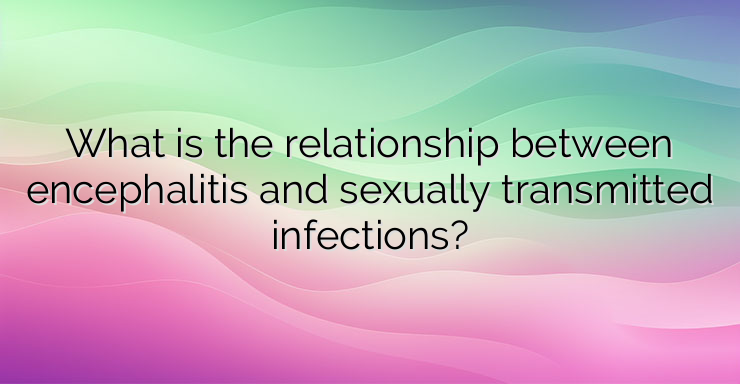What is encephalitis? Encephalitis is an infection of the brain tissue and is usually caused by a virus. Some types of viruses that can cause encephalitis include arboviruses, enteroviruses, and herpes viruses. However, most viral infections do not lead to encephalitis, which is a rare complication of viral infection. Symptoms of encephalitis are highly variable and resemble flu symptoms, they may include: Headache; Fever; Memory problems; Changes in personality; Other problems less prominently related to the brain, such as nausea These symptoms are caused by edema (swelling) of the brain that occurs during the infection. Depending on the severity of the inflammation, encephalitis can cause mild, reversible or major, permanent health problems. Encephalitis is more likely to occur in young children and the elderly, as well as in people who are immunocompromised – for example from HIV. For changes in consciousness, memory, or personality, or other symptoms of brain swelling, medical attention should be sought immediately. Prompt diagnosis and treatment of the condition can help prevent the worst complications of an infection in the brain. What is the connection between sexually transmitted diseases and encephalitis? Encephalitis is not a common complication of STDs, but it can still occur. Fortunately, proper treatment of viral sexually transmitted infections, such as HIV and herpes simplex virus (HSV), further reduces the risk of developing encephalitis. Proper treatment of these STDs also improves overall health and the risk of transmitting the virus to a partner. Encephalitis can be a consequence of herpes infection in newborns or adults. In fact, some experts believe that herpes encephalitis may be a risk factor for the onset of Alzheimer’s disease. Encephalitis can be caused by HSV-1 or HSV-2. However, most herpes infections in adults do not lead to encephalitis. This is an extremely rare complication. Herpes encephalitis is one reason why neonatal herpes (when a baby is infected with either HSV-1 or HSV-2 near the time of birth) can be fatal. Although less common, the infection can also be fatal in elderly patients, even when they receive antiviral drugs in time. The risk of death or severe brain damage from herpes encephalitis is higher in individuals who do not receive prompt treatment. Herpes encephalitis more often affects people with a weakened immune system, just like encephalitis in general. Untreated HIV infection is also associated with an increased risk of neurocognitive problems, which include encephalitis. However, much of the brain damage caused by HIV is due to a relatively low level of edema. Encephalitis does not necessarily result from a direct infection of the brain.It is possible for HIV infection to affect the central nervous system, but this is not the only reason HIV causes such problems. HIV encephalitis is more often caused by a secondary viral infection, such as cytomegalovirus (CMV) infection. Neurosyphilis (syphilis of the nervous system) as well as tuberculosis of the central nervous system can also occur in people who have HIV. These pathogens can cause brain infection whether a patient has HIV or not, however, encephalitis is generally more common in people who have HIV than in those who are not infected with the virus. References: 1. Hong S, Banks WA. Role of the immune system in HIV-associated neuroinflammation and neurocognitive implications 2. Itzhaki RF, Wozniak MA. Herpes simplex virus type 1 in Alzheimer’s disease: the enemy within 3. Kennedy PG, Steiner I. Recent issues in herpes simplex encephalitis 4. Steiner I, Benninger F. Update on herpes virus infections of the nervous system 5. Verywell Health. Encephalitis and Its Relationship to STDs


Leave a Reply